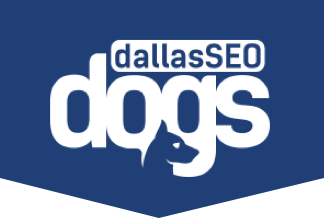Common SEO Mistakes To Avoid In 2024

Search engine optimization (SEO) changes rapidly, and tactics that worked effectively a year or two ago might now hinder your search rankings. If you’re wondering why your website isn’t bringing in enough traffic or potential customers, you may inadvertently be making some common SEO mistakes. In this article, we’ll uncover the potential pitfalls and common SEO mistakes small businesses make, and explain how to steer clear of them, optimizing your site for peak performance.
What is SEO? What is SEO Marketing?
Before we dive into specific mistakes, let’s get on the same page about some terminology. SEO stands for “Search Engine Optimization.” It’s a set of practices for improving your website’s visibility and ranking within search engine results pages (SERPs) like Google or Bing.
SEO marketing utilizes SEO strategies with the intent to generate more leads and sales. It involves researching what your target customers are searching for and optimizing your content and website accordingly.
SEO Mistake #1 — No Content Strategy
Creating content without a plan leads to disorganized, often irrelevant topics that don’t align with your overall business goals or what your customers are actually searching for. Here’s what to do for an effective content marketing strategy:
- Target Research: Who are you creating content for? Understand their interests, questions, and the challenges they face.
- Keyword Research: Identify the search terms and phrases your ideal customers use. Tools like Google Keyword Planner or SEMrush can be helpful for this.
- Content Calendar: Plan topics, publishing dates, and formats (blog posts, videos, etc.) for consistency and organization.
SEO Mistake #2 — Duplicate Content
Duplicate content refers to large blocks of text that are identical or substantially similar, appearing either within your own website or across multiple sites. This practice hurts your SEO in multiple ways.
When search engines encounter duplicate content, they have trouble determining which version is the original or most relevant. This can lead to the wrong pages being ranked, or worse, all versions being downranked. Links from other sites (backlinks) are a powerful signal to search engines about your site’s authority.
If identical content exists in multiple places, the link equity gets split instead of focused, harming your rankings. And finally, visitors who land on a page with the same text they’ve seen elsewhere are likely to bounce, indicating to search engines that your content provides low value.
That’s why the best solution is to always strive for unique content. Every page should offer original insights, data or perspectives that set it apart — pages with rich content, versus blogs you write just to have content on the site.
Canonical Tags and Other Notes
In cases where near-duplicate content is unavoidable (like product descriptions on e-commerce sites), use a “canonical” tag. This tells search engines which version is the “master” to index, consolidating signals. If you have older versions of pages or have moved content, use 301 redirects. These signal to search engines that the content has a new home, consolidating authority to the latest version.
Also: Never “scrape,” also known as plagiarizing: don’t copy and paste content from other websites. Search engines have sophisticated algorithms to detect plagiarism, even if you try to rephrase things. Not only will you get penalized, but it also destroys your brand’s trustworthiness.
And finally, please note that while Google has stated there’s no direct “duplicate content penalty”, the impact is very real. By confusing search engines and diluting your own authority, you lose out on the visibility and rankings that high-quality, unique content deserves.
SEO Mistake #3 — Avoiding On-Page Optimization
Neglecting on-page elements means not giving search engines a clear understanding of your page’s topic or not providing a great user experience. Try these tips to make sure every page and post you publish is optimized for search engine success!
- Title tags, which appear at the beginning of a page’s code, should include primary keywords near the beginning. Keep them under 60 characters to prevent them from being cut off in search results, and make sure they’re unique to every page on the site.
- Meta descriptions, which appear in a page’s header, should entice users with a persuasive blurb (around 155 characters) that includes relevant keywords. Make sure it’s readable, not robotic, just like in your body copy.
- Images should use descriptive filenames (and dashes) like “healthy-chocolate-chip-cookies.jpg” instead of generic ones or underscores. Make sure you add alt-text that clearly describes the image for screen readers and search engines and includes your focus keyword up front. Finally, compress your images to boost page loading speed.
SEO Mistake #4 – Lack of Mobile-Friendly Design
Sites that don’t display properly on mobile devices frustrate users, who are likely to quickly abandon them. Search engines recognize these high bounce rates and poor usability signals, harming your ranking.
What to do: Invest in website design that can seamlessly adapt to various screen sizes (desktops, tablets, phones) — this is called “responsive design,” and it’s the standard. Use Google’s Mobile-Friendly Test tool to identify speed issues. Finally, be sure to simplify your navigation as much as possible. Mobile menus should be intuitive and easy to use with fingers.
SEO Mistake #5 — Improper Keyword Optimization
Keyword stuffing (overusing keywords unnaturally) can hurt your rankings as search engines prioritize natural-sounding content. But alternately, not optimizing at all means missed opportunities to signal relevancy. What are you supposed to do?
- Focus on Relevance: Select keywords that are genuinely related to your page’s topic.
- Natural Integration: Weave keywords organically into headings, body text, and image alt-text.
- Don’t Overdo It: Prioritize a smooth reading experience rather than cramming in an unnatural number of keywords.
Why Is It So Important to Avoid These Common SEO Mistakes?
SEO mistakes aren’t just a minor inconvenience – they can have significant, long-lasting consequences for your business. Here’s a breakdown of why it’s crucial to steer clear of these pitfalls:
Low Rankings
Unoptimized sites struggle to appear high in search results. When your website languishes on the second, third, or even lower pages of search results, most potential customers simply won’t find you. Search engine algorithms heavily favor websites that are well-optimized and designed according to their standards.
Decreased Traffic
Limited visibility means fewer people finding your website. Low rankings often directly translate into decreased website traffic. Think of it this way: if you don’t show up when people are searching for solutions like yours, you’re essentially invisible to them – traffic that could have been yours will go to your competitors instead.
Lost Leads
Without traffic, you’ll lose precious sales opportunities. Website traffic, especially from potential customers actively searching for your products or services, is directly tied to lead generation. Each missed visitor due to poor SEO is a lost opportunity to introduce them to your business, nurture them, and eventually convert them into paying customers.
Reduced Brand Awareness
Search engines are often the first way people interact with your brand. Poor SEO practices limit your chances to leave a positive impression and make your mark on your target audience.
Competitive Disadvantage
While you’re making SEO mistakes, your competitors might be investing in the right strategies. This puts you at a major disadvantage as they outperform you in search rankings, drawing away potential customers who would otherwise interact with your business.
In short, common SEO mistakes can stifle your business growth and make it harder to achieve your online marketing goals. That’s why it’s important to find a Dallas SEO company you can trust.
Dallas SEO Dogs Can Help You Build Your SEO Dreams
Navigating SEO can be overwhelming, especially for small businesses juggling many priorities. That’s where a professional Dallas SEO agency like Dallas SEO Dogs comes in. Their expert team can:
- Audit your website: Pinpoint existing SEO issues holding your site back.
- Develop a strategy: Create a tailored plan addressing your unique business goals.
- Optimize your content: Produce quality copy using relevant keywords and SEO best practices.
- Implement technical SEO: We’ll make sure your site is search engine friendly.
- Track results: Monitor your progress and adjust your strategy as needed.
Don’t let common SEO mistakes sabotage your online success. Schedule a consultation with Dallas SEO Dogs today and let them boost your website’s visibility and drive more leads to your business!
